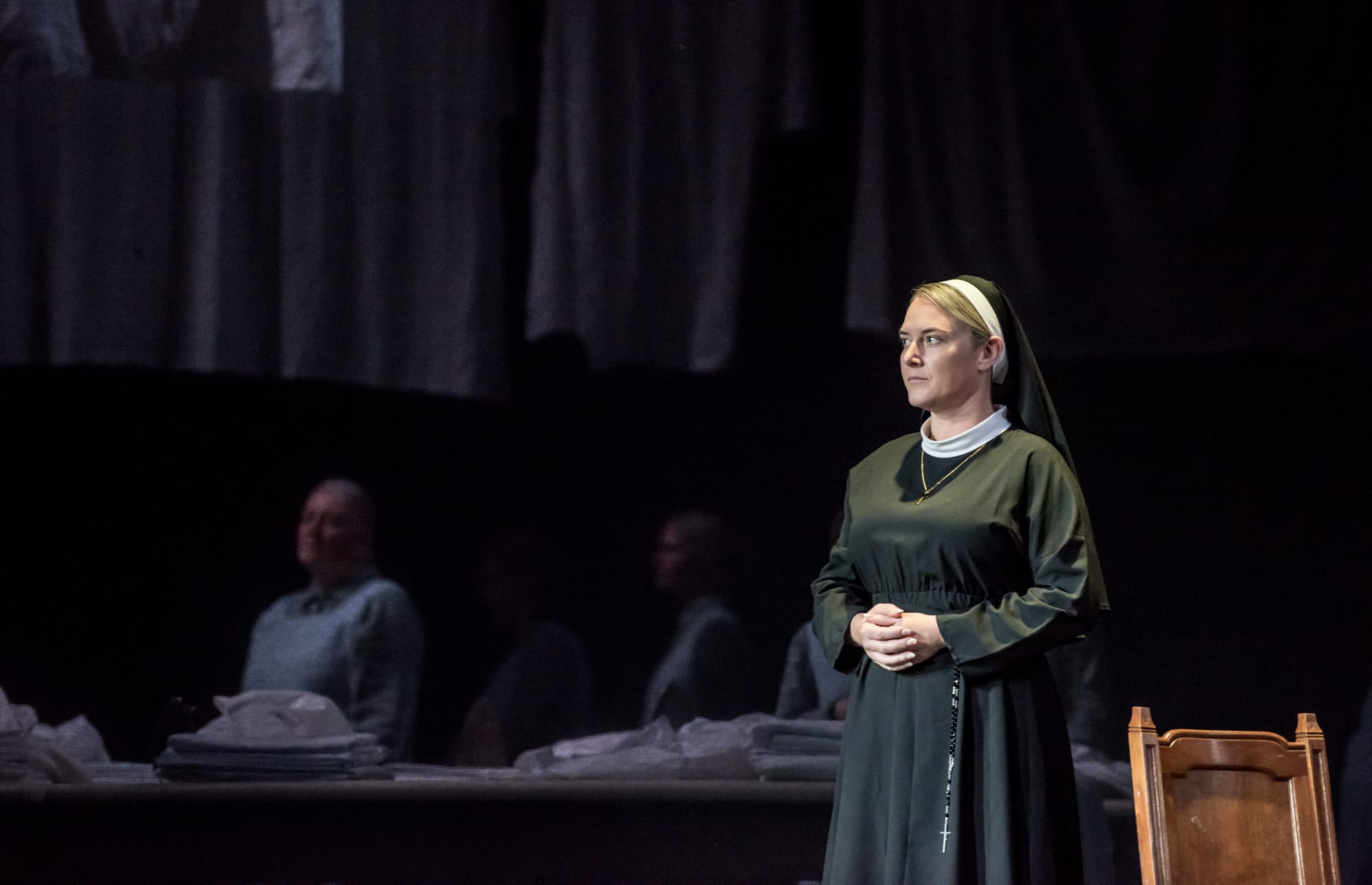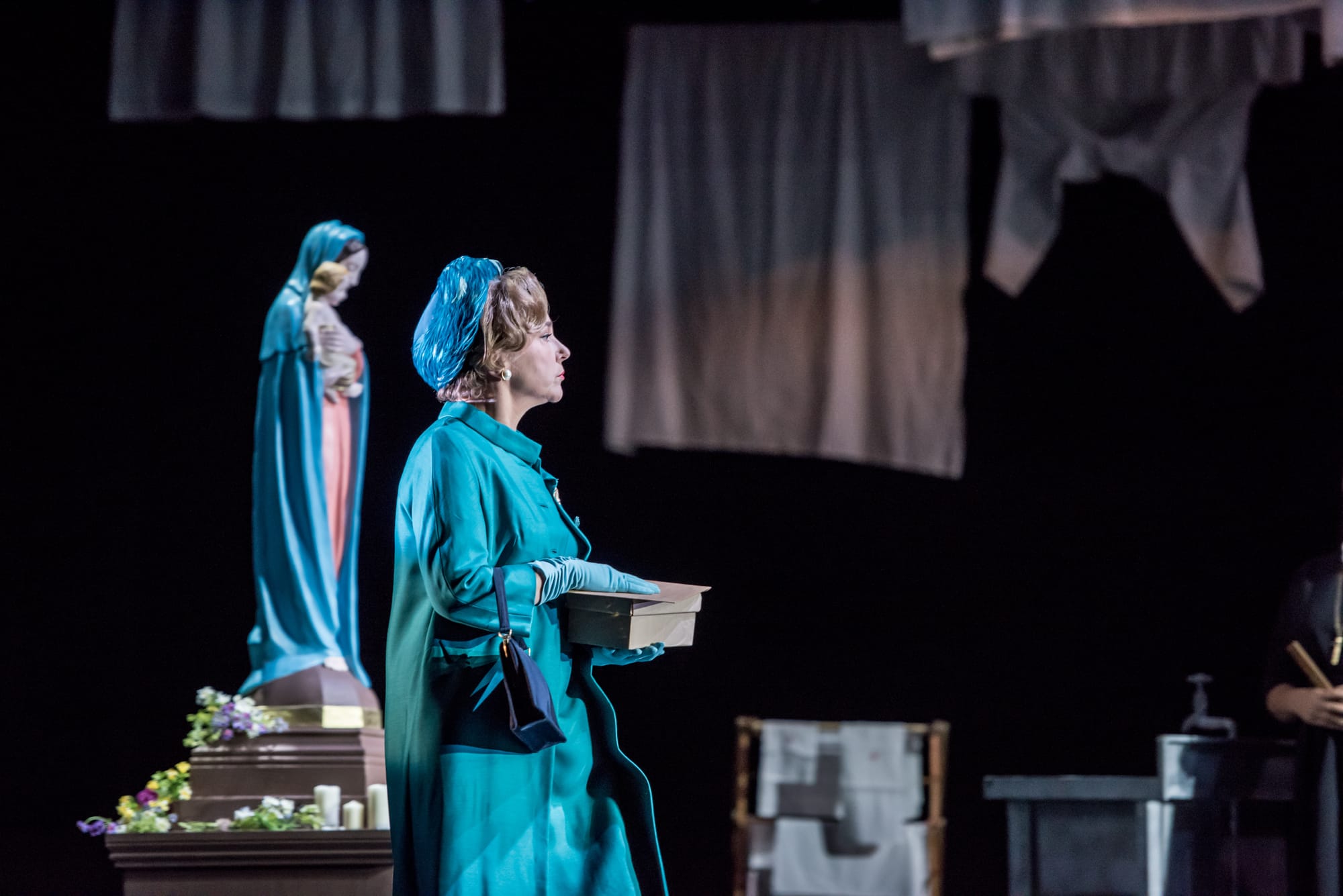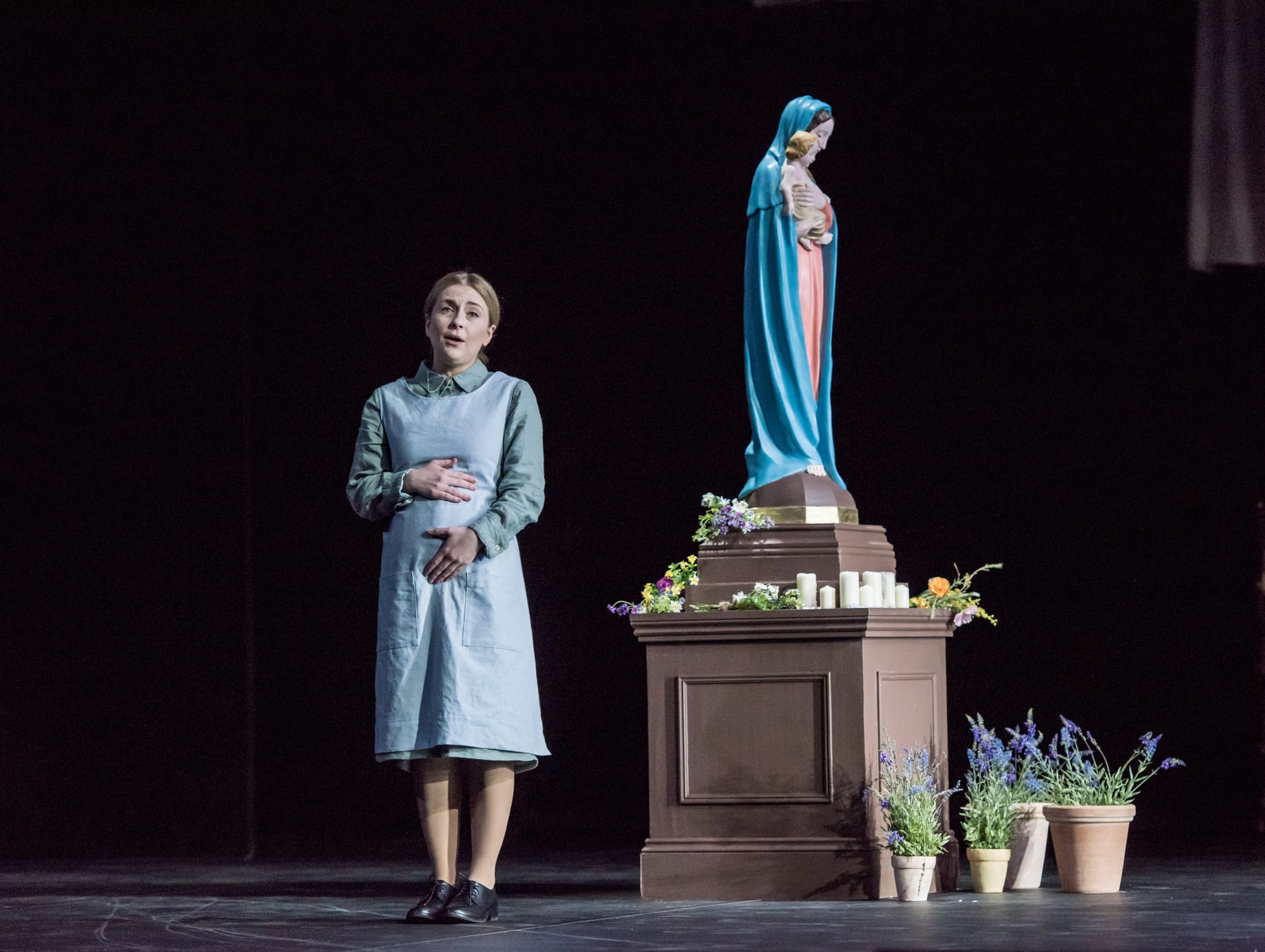
NB: I’m reposting this, as one of next week’s posts will be a full Trittico from Vienna ….
Puccini Suor Angelica (sung in English, traans. Amanda Holden). Cast; Chorus and Orchestra of English National Opera / Corinna Niemeyer. Coliseum, London, 27.09.2024
Production:
Director: – Annelese Miskimmon
Designer – Yannis Thovaris
Lighting Designer – Mark Jonathan
Cast:
Sister Angelica – Sinéad Campbell-Wallace
The Baroness – Christine Rice
The Abbess – Madeleine Shaw
The Monitress – La Shaw
The Mistress of the Novices – Gaynar Keeble
Genevieve – Alexandra Oomens
Valentina – Jane Reid
Sister Dolcina – Sarah-Jane Lewis
The Nursing Sister – Sophie Goldrick
First Alms Sister – Tanya Hurst
Second Alms Sister – Susanna Tudor-Thomas
A Novice Nun – Annabella-Vesela Ellis
First Magdalene Sister – Claire Pendleton
Second Magdalene Sister – Morag Boyle
Child – Benjamin Gluhovsky
ENO presented two performances only of Suor Angelica, both on the same night (this review is of the first). Shorn of its function as the central panel of Il tritico was not, on reflection, a bad thing: it puts the attention firmly on this hour-lone piece, allowing an enriched appreciation, and it leaves the ending haunting audience after they leave the theatre.
But what does ‘semi-staged’ mean? I have seen semi-stagings that were basically concert performances; director Annilese Miskmmon’s vision was far more than this, practically fully-staged. Yes, the props were minimal: a Madonna on the left, a desk on the right and some hanging laundry. The laundry? Muskimmon has resituated the opera to the Magdalene Laundries, convents of 1960s Ireland where young girls were sent who had violated social mores, including pregnancy out of wedlock. Such of course is the event at the centre of Suor Angelica; but here the predominant energy of the women is that of downtrodden, disconsolate misery (in a nunnery, at least some will be happy they are nuns, surely?). A statue of the Madonna observes everything as well as being an idol in Her own right; Angelica’s child appears in the heart-rending final scene, draping himself over the nun. It is a powerful take, for sure; with Mark Jonathan’s lighting skilfully maintaining this atmosphere throughout.
Suor Angelica needs an intelligent conductor. This is not an opera of highlights (only really Angelica’s ‘Senza mamma’ has gained independent traction), so it needs someone who can see the whole while relishing detail, and Niemeyer seems to be just that person. Talk of ’Senza mamma,’ though, brings us to Angelica herself. Sinéad Campbell-Wallace (pictured at the head of this post) has never disappointed (her Fidelio/Leonore for Insula remains lodged in the memory), and this was no exception, that aria a real highpoint, her concluding dissolve into death stunningly realised. Miskimmon has her almost unnoticeable at the opera’s opening; this Angelica creeps into our consciousness stealthily, perhaps to imply her pain is only hat of one woman amongst many (an idea emphasised by a procession of prams we see at one point).
Almost matching Campbell-Wallace in intensity and dramatic resonance is the part here described as ‘Baroness’ (‘Principessa’ in Puccini’s original Italian). It is a contralto/deep mezzo role and Christine Rice brought rich tone and profound authority in her wake. Her account of what most will know as ‘Il Principe Gualtiero vostro padre’ was mesmeric, underpinned by a truly dark-timbred orchestra and perfect pacing from Niemeyer. Notice how her clothes match the robe of the Madonna. The Abbess, Madeleine Shaw, embraced the strict authority of her part well, while singing with burnished timbre.

One stand-out away from these principals was soprano Alexandra Oomens, who made a very strong impression as the Magdalene Sister Genevieve, and sings of sunlight striking a fountain in golden tones, her voice clarion clear. Her recent and ongoing roles at Berlin’s Deutsche Oper comprise Frasquita Carmen and Papagena Zauberflöte; I very much hope to see and hear her again. Lee Shaw, making her ENO debut as The Monitress, will surely be welcomed back with open arms. Nine members of the ENO Chorus completed the cast.

A thought-provoking (semi-)staging, then, brilliantly realised. The ENO orchestra is on fine, form, the members of the chorus excelling too in their realisations of Puccini’s characteristically imaginative use of stage space.
For so many reasons, this is a compelling hour (it feels wrong to call it an ‘evening’). The opera does not even get its own booklet (it shares one with La bohème) but it does make quite an impression in its own right. And given Corinne Niemeyer’s confident, intelligent conducting, she is certainly a conductor I would seek out again; the ENO Orchestra rise to her every whim. Overall, this Suor Angelica felt like a return to the great days of ENO, if in short format; a reminder of what a gem this company really is.









